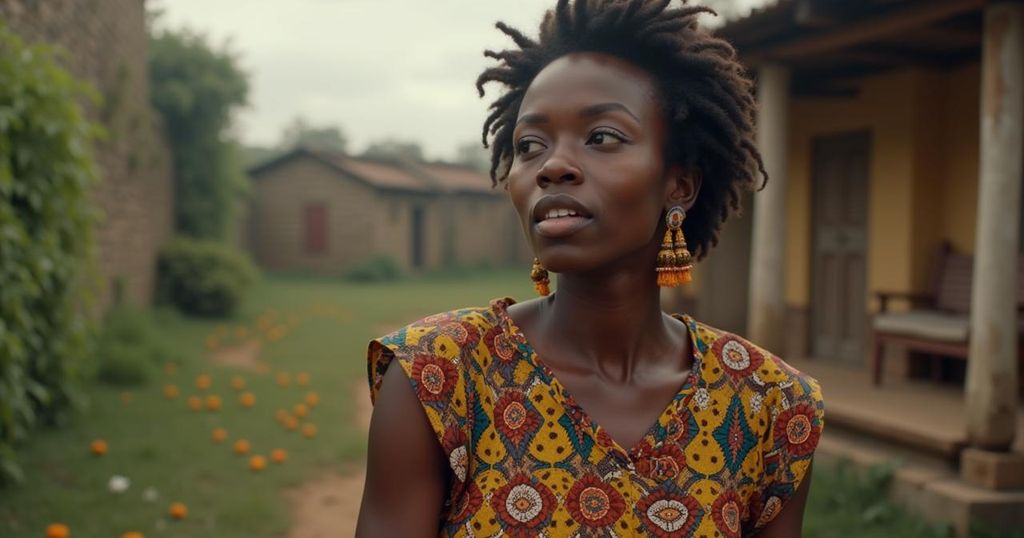The article summarizes significant news events from Africa in 2018, highlighting major developments in various countries, including Djibouti’s peace initiatives with Eritrea, the political turmoil in DRC, Egypt’s elections, and Ethiopia’s peace reforms. It emphasizes the continent’s struggles with governance, security, and economic challenges while showcasing notable progress and international relations.
As 2018 comes to a close, Africanews reflects on significant developments across the continent in various sectors including politics, economy, and social issues. This retrospective highlights major news stories from each African nation, focusing on their respective challenges and responses to regional and global dynamics. Starting with Djibouti, notable events included peace efforts with Eritrea, where Djibouti requested United Nations mediation to address longstanding border disputes. Additionally, the inauguration of a $3.5 billion free trade zone, backed by a Chinese firm, marked an economic milestone. Concurrently, China established its first overseas military base in Djibouti, signaling its growing influence in the region. In the Democratic Republic of Congo, political turmoil persisted with President Joseph Kabila agreeing to step down after a two-year delay. Amid intense anti-government protests and a resurgence of Ebola – which became the second deadliest outbreak in history – the country was bracing for elections scheduled for December 23, 2018. Notably, Denis Mukwege was awarded the Nobel Peace Prize for his efforts in advocating against sexual violence. Egypt experienced significant political developments as President Abdul Fattah Al-Sisi was re-elected amidst a low voter turnout influenced by calls for a boycott. The country also engaged in discussions regarding Ethiopia’s Grand Ethiopian Renaissance Dam, which has been a point of contention concerning Nile waters. Moreover, attacks on Coptic Christians remained prevalent as the government amplified its security measures. Eritrea and Ethiopia took a historic step towards reconciliation, putting an end to decades of conflict. This peace process catalyzed the lifting of UN sanctions and reinvigorated Eritrea’s diplomatic relations globally. Ethiopia, under the leadership of Prime Minister Abiy Ahmed, made strides towards reform and stability, particularly in enhancing women’s representation in government. His administration actively promoted peace both domestically and regionally. Equatorial Guinea confirmed an earlier coup attempt while Vice President Teodorin Obiang was detained in Brazil for suspicious financial dealings. The ruling government began releasing opposition members, indicating a slight thaw in the political landscape. In Gabon, President Ali Bongo’s health issues dominated headlines as he recovered from a stroke. The ICC dropped its investigation into post-election violence, alleviating some political tensions in the country. The Gambia focused on transitioning out of the Jammeh era as President Barrow appointed a new vice president and initiated commissions to address past grievances. Ghana mourned the loss of Kofi Annan and faced governance challenges as corruption allegations surfaced against football officials, prompting public protests over U.S. military agreements. In Guinea, widespread protests erupted against President Alpha Conde’s administration amid allegations of corruption, while Guinea-Bissau’s political instability led to sanctions from ECOWAS, exacerbating the crisis and resulting in delays in holding legislative elections. Ultimately, 2018 was a year of reflection on the progress, challenges, and transformations experienced by African nations in the face of both internal and external pressures, concluding with varied responses to significant social, political, and economic undertakings.
The article provides an overview of the key news events in African countries throughout 2018, capturing the political, social, and economic climates of the continent as it navigated various crises and milestones. From elections and peace agreements to protests and economic initiatives, the piece serves as a comprehensive review of a year marked by both optimism and strife across Africa. It indicates how nations responded to enduring issues and emerging opportunities.
In conclusion, 2018 was a formative year for Africa, marked by critical political transitions, peace agreements, and significant economic projects. While challenges such as corruption, health crises, and security issues persisted, many countries took substantial steps toward reform and regional collaboration. This retrospective underscores the dynamic nature of the continent and the diverse responses of its nations as they strive for progress amidst ongoing hurdles.
Original Source: www.africanews.com






